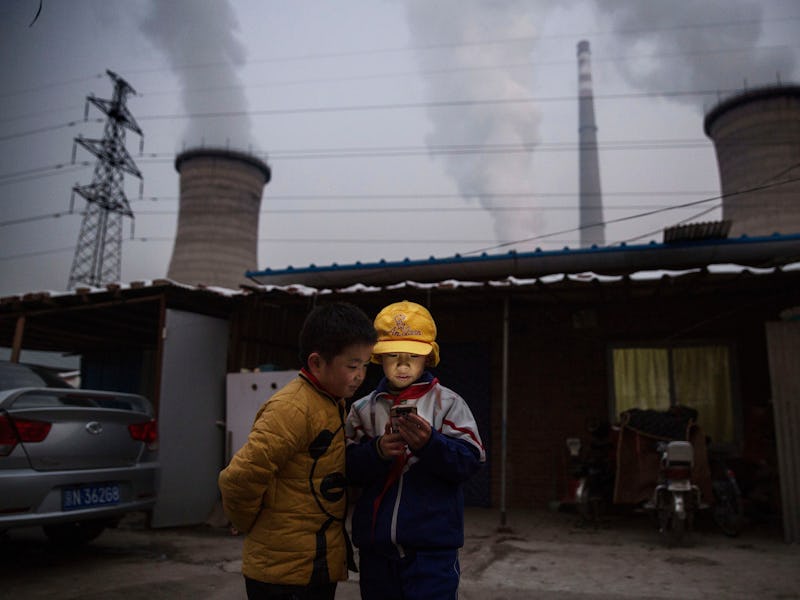The Technology Gap Will Become a Canyon
If you're in agriculture, the service industry, or the clerical industry, you best get started coding.

There are there are two startling projections in the World Bank’s sleep-inducing “World Development Report,” released last week:
One: As traditional jobs continue to fade into oblivion and the number of modern, technologically-demanding jobs continues to climb, people who have grown up without the internet will be farther behind those whose lives have revolved around technology.
Two: The probability of certain jobs’ nullification-via-technology is extremely high. Most likely to be affected, according to the report: Agricultural jobs, clerical jobs, and service industry jobs.
The World Bank maintains that people who grow up without the internet are at an extraordinary disadvantage, which is definitely true if your standard for “advantageous” is — as it is in the case of the World Bank — informed by money and money alone. The report is not off base, however, in highlighting the brimming, widening inequalities that would result from a significant portion of the world remaining offline. And while the number of internet users since 2005 has “more than tripled,” four billion people remain disconnected. And while the number of internet users since 2005 has “more than tripled,” four billion people remain disconnected.
None of these findings would be too problematic if it weren’t for another finding tucked into the book-length report: Even the World Bank is convinced that computers are getting very close to taking our jobs.
Specifically, two-thirds of all jobs in the developing world are susceptible to automation. In the developing world, this transformation will be offset by the rate of technology adoption, but will no less spell disaster for technologically uneducated workforces. And even in the developed world, certain industries are destined to doom. Specifically — and notably — service, clerical, and agricultural jobs.
One archetypal American will scoff at the thought of being served, in a restaurant, by a robot; another will revel in the thought. The same goes for clerical work. Regardless, the report does note that these worries have pestered us for decades, and quotes Asimov divining the flavor of 2014 in 1964 :
“The world of A.D. 2014 will have few routine jobs that cannot be done better by some machine than by any human being. Mankind will therefore have become largely a race of machine tenders. Schools will have to be oriented in this direction…
“Even so, mankind will suffer badly from the disease of boredom, a disease spreading more widely each year and growing in intensity. This will have serious mental, emotional and sociological consequences, and I dare say that psychiatry will be far and away the most important medical specialty in 2014. The lucky few who can be involved in creative work of any sort will be the true elite of mankind, for they alone will do more than serve a machine.
“Indeed, the most somber speculation I can make about A.D. 2014 is that in a society of enforced leisure, the most glorious single word in the vocabulary will have become work!”
All in all, the World Bank and its report-makers purport to be concerned with the ever-widening inequality gap. Many thought technology could and would spell the end of such drastic inequality, but the report is quick to note that we’ve yet to witness the fulfillment of such prophecies.
“Although there are many individual success stories, the effect of technology on global productivity, expansion of opportunity for the poor and middle class, and the spread of accountable governance has so far been less than expected. Digital technologies are spreading rapidly, but digital dividends – growth, jobs and services – have lagged behind.”
Either way, it’s advisable that you start learning how to code.